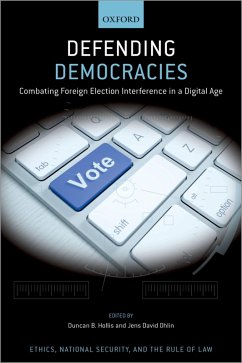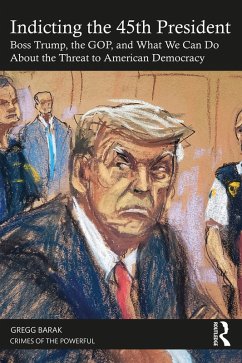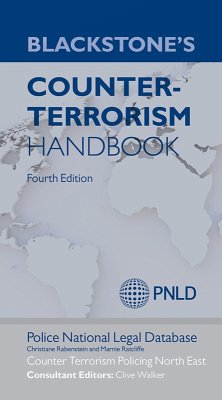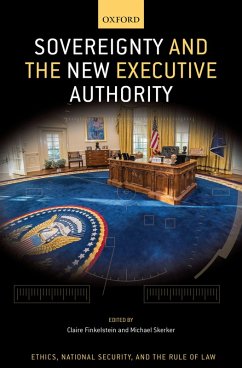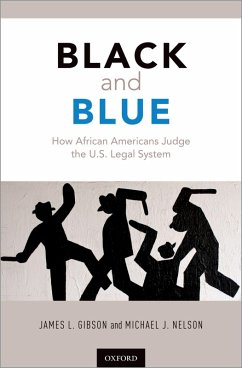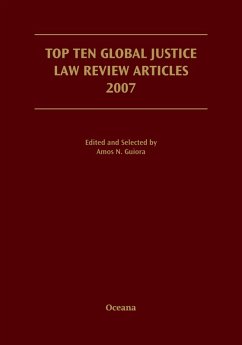
Defending Democracies (eBook, PDF)
Combating Foreign Election Interference in a Digital Age
Redaktion: Ohlin, Jens David; Hollis, Duncan B.
Versandkostenfrei!
Sofort per Download lieferbar
51,95 €
inkl. MwSt.
Weitere Ausgaben:

PAYBACK Punkte
26 °P sammeln!
Election interference is one of the most widely discussed international phenomena of the last five years. Russian covert interference in the 2016 U.S. Presidential Election elevated the topic into a national priority, but that experience was far from an isolated one. Evidence of election interference by foreign states or their proxies has become a regular feature of national elections and is likely to get worse in the near future. Information and communication technologies afford those who would interfere with new tools that can operate in ways previously unimaginable: Twitter bots, Facebook a...
Election interference is one of the most widely discussed international phenomena of the last five years. Russian covert interference in the 2016 U.S. Presidential Election elevated the topic into a national priority, but that experience was far from an isolated one. Evidence of election interference by foreign states or their proxies has become a regular feature of national elections and is likely to get worse in the near future. Information and communication technologies afford those who would interfere with new tools that can operate in ways previously unimaginable: Twitter bots, Facebook advertisements, closed social media platforms, algorithms that prioritize extreme views, disinformation, misinformation, and malware that steals secret campaign communications. Defending Democracies examines the problem through an interdisciplinary lens and focuses on: (i) defining the problem of foreign election interference, (ii) exploring the solutions that international law might bring to bear, and (iii) considering alternative regulatory frameworks for understanding and addressing the problem. The result is a deeply urgent examination of an old problem on social media steroids, one that implicates the most central institution of liberal democracy: elections. The volume seeks to bring domestic and international perspectives on elections and election law into conversation with other disciplinary frameworks, escaping the typical biases of lawyers who prefer international legal solutions for issues of international relations. Taken together, the chapters in this volume represent a more faithful representation of the broad array of solutions that might be deployed, including international and domestic, legal and extra-legal, ambitious and cautious.
Dieser Download kann aus rechtlichen Gründen nur mit Rechnungsadresse in A, B, BG, CY, CZ, D, DK, EW, E, FIN, F, GR, HR, H, IRL, I, LT, L, LR, M, NL, PL, P, R, S, SLO, SK ausgeliefert werden.




